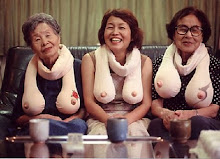In the sphere of deviance we find “political actors and views which journalists and the political mainstream of society reject as unworthy of being heard.” As in the sphere of consensus, neutrality isn’t the watchword here; journalists maintain order by either keeping the deviant out of the news entirely or identifying it within the news frame as unacceptable, radical, or just plain impossible. The press “plays the role of exposing, condemning, or excluding from the public agenda” the deviant view, says Hallin. It “marks out and defends the limits of acceptable political conduct.”Anyone whose views lie within the sphere of deviance—as defined by journalists—will experience the press as an opponent in the struggle for recognition. If you don’t think separation of church and state is such a good idea; if you do think a single payer system is the way to go; if you dissent from the “lockstep behavior of both major American political parties when it comes to Israel” (Glenn Greenwald) chances are you will never find your views reflected in the news. It’s not that there’s a one-sided debate; there’s no debate.
BTW, this is not the usual self-loathing. Why in hell should I want to "save" the P-I, it's an early death in the ongoing pandemic. Something else is emerging and people much smarter than I are watching and describing it.
Oh, wait, it is the Lizard People after all.
Wednesday, January 14, 2009
Why Most Journalism Is Crap
I'm still working on my own theory, but in the meantime there's always Jay Rosen.
Labels:
Journalism,
Politics
Subscribe to:
Post Comments (Atom)


No comments:
Post a Comment